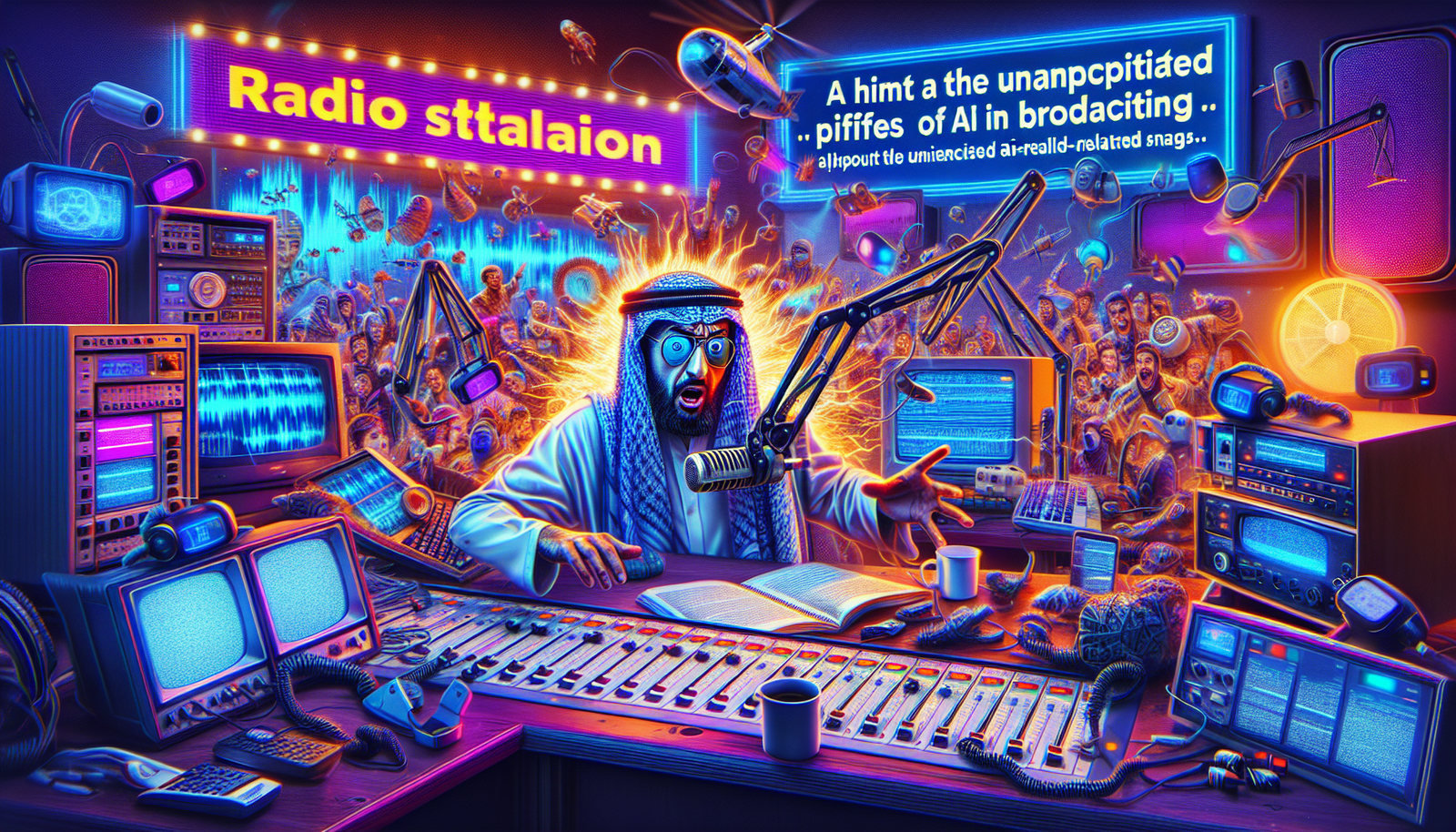The digital revolution is disrupting the media landscape. In Poland, a radio station recently experimented with artificial intelligence, deploying virtual hosts in its programs. This bold initiative, intended to attract a younger audience, has sparked intense controversy. Unwanted reactions and ethical debates have ensued. The possibility of interacting with historical figures, while fascinating, raises fundamental questions about integrity and respect for memories. The use of AI in this sphere challenges media standards. The challenges and consequences of this experiment go beyond mere technological issues and delve into the core of societal values.
The Off Radio Krakow Project
Off Radio Krakow, a Polish public radio station, recently embarked on a bold project by integrating artificial intelligence to host its shows. Digital avatars, Alex, Emilia, and Jakub, made their debut by discussing contemporary topics, while generating public interest.
A Controversial Experiment
The AI-generated hosts were tasked with simulating dialogues with iconic Polish figures, including writers and historical personalities. One of the most notable moments was the fictional interview with Wislawa Szymborska, the Nobel Prize-winning author who passed away in 2012. Although this project offered a fascinating innovation, it also provoked negative reactions from the public.
Controversy Over the Appropriation of Past Voices
The use of synthetic voices of deceased individuals raised ethical questions. Listeners were outraged to see celebrated figures represented without their explicit consent. The radio had also considered interviewing Stanislaw Lem and Jozef Pilsudski, but the controversy halted these plans.
Listener Reactions and Withdrawal of the Project
The public’s reaction was unanimous; the emotional responses were far stronger than expected. Marcin Pulit, the station’s administrator, stated that he received a large number of critical messages. Based on this unexpected experience, he concluded that continuing the project would be nonsensical, specifying: “We were surprised by the degree of emotion that it generated.”
A Call for AI Regulation
In his statement, Marcin Pulit called for regulation of AI in Poland. The spontaneity of the experiment, which must be framed within a legislative context, highlights the need for deep reflection on the use of technology in media.
Critiques of the Radio’s Methods
Mateusz Demski, a former collaborator of the station, criticized this project, labeling it as total amateurism. According to him, the lack of data and methodology raises genuine ethical concerns. “It’s irresponsible. One should not carry out experiments of this nature with taxpayers’ money,” he retorted.
Sustainability and Reflection on the Future of Media
The attempt to integrate AI into the media landscape represents an unprecedented ambition in Poland, prompting society to consider the role of technology in culture. The challenges for media are accumulating, requiring an informed approach to preserve ethics and human creativity.
Frequently Asked Questions about the Use of Artificial Intelligence in Radio Stations in Poland
What were the objectives of the artificial intelligence experiment at Off Radio Krakow?
This experiment aimed to assess whether artificial intelligence could be beneficial or harmful for media by replacing human hosts with AI avatars to anchor radio programs.
Why was the experiment prematurely halted?
The radio ended the project after only a week due to the strong emotional reaction from the public and criticism regarding the irresponsibility of the initiative.
What are the ethical implications of using artificial intelligence in media?
The ethical implications include the risk of dehumanizing content, the spread of misinformation, and the need for regulations to protect audience sensitivities.
How did AI hosts interact with historical figures?
The AI hosts were programmed to simulate interviews with deceased personalities, but these interactions were entirely machine-generated, raising concerns about authenticity and respect for the memory of these figures.
What feedback did listeners provide about the shows produced by artificial intelligence?
Listeners expressed dissatisfaction with the lack of authenticity and an audio experience they deemed unrepresentative of the human essence of radio.
What lessons can Polish media learn from this experience with AI?
Media should approach the integration of AI with caution, invest in rigorous methodologies, and involve the public in discussions about ethics and the impact of technologies on media production.
How has this situation influenced public discourse on AI in Poland?
It has sparked a broader debate about the regulation of AI in media, the protection of cultural and ethical values, and future perspectives regarding automation in sensitive areas.
Have there been any consequences for Off Radio Krakow following this controversy?
Yes, the radio station faced significant media pressure and public discontent, prompting officials to reconsider the use of AI in their future broadcasts.






